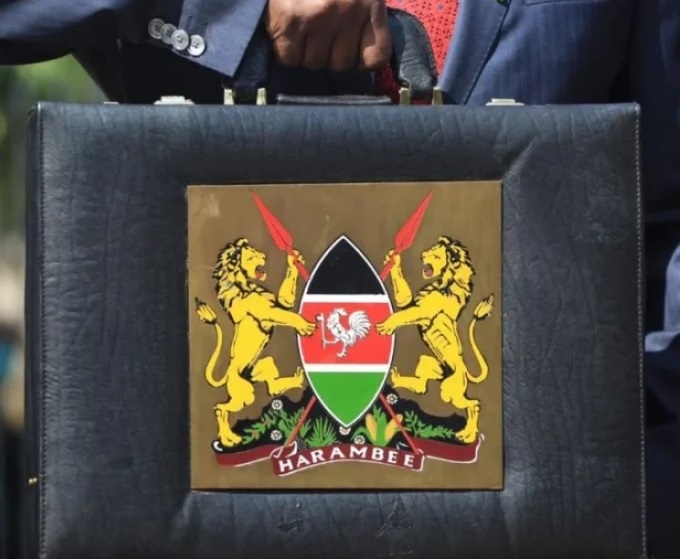
Kenya’s smallholder farmers, who produce over 70% of the country’s food, are staring down potentially devastating changes under the proposed Finance Bill 2025. The bill, currently under parliamentary review, introduces tax adjustments that farming groups warn could sharply increase the cost of food production and destabilize agricultural livelihoods across the country.
The Kenya National Farmers’ Federation (KENAFF) has been vocal about the urgent risks these proposals pose. During a recent briefing at the Farmers’ Conference Centre in Thogoto, Kiambu County, KENAFF National Board Chairman Prof Kaburu M’Ribu appealed to the government to reconsider the new tax measures, emphasizing their likely consequences on food security, rural incomes, and sector growth.
Key Proposals Raising Alarm
Among the most contentious provisions in the Finance Bill 2025 are the removal of VAT exemptions on crucial agricultural inputs, an increase in excise duty on fuel, and fresh levies on packaging materials. These adjustments, if approved, would have immediate and far-reaching implications:
- Fertilizers, seeds, and pesticides, which have long enjoyed zero-rated VAT status, would now attract a 16% VAT. This shift alone could push input costs beyond the reach of many smallholders already grappling with high market prices and climate-related challenges.
- Fuel prices are set to rise as excise duty increases from Sh21.95 to Sh24.95 per liter. Since fuel powers farm machinery and transports produce to markets, especially from remote rural areas, the price hike threatens to inflate costs across the agricultural value chain.
- Fertilizers and pest control products would also be reclassified from zero-rated to VAT-exempt. While this might appear minor, it prevents suppliers from claiming input tax on these products, creating hidden costs that are likely to be transferred to farmers.
- New levies on packaging materials, particularly for processed agricultural products such as tea and vegetables, could undermine value addition efforts and erode Kenya’s competitiveness in export markets.
Deeper Risks for Kenya’s Food System
KENAFF has cautioned that the proposed tax changes come at a time when smallholder farmers are already dealing with volatile input prices, frequent market disruptions, and worsening climate shocks. The removal of VAT exemptions and rising fuel prices would likely:
- Discourage the use of certified seeds and high-quality fertilizers, as farmers opt for cheaper, lower-yield alternatives.
- Drive up food prices for consumers, with the costs of higher production trickling down to market shelves.
- Weaken farm profitability, pushing many smallholders closer to financial collapse.
- Undermine Kenya’s export competitiveness, especially in crops like tea where packaging levies and rising input costs threaten margins.
- Reverse recent productivity gains achieved through government subsidies and rural investment programs.
Government Support at Risk of Being Undone
The government has allocated Sh77.7 billion to the agriculture sector this financial year, including Sh10 billion for the fertilizer subsidy program aimed at offsetting global price hikes. However, industry stakeholders argue that these subsidies could be rendered ineffective if VAT, fuel, and regulatory fees continue to climb.
According to KENAFF, unless the proposed tax changes are reconsidered, the very progress achieved through subsidies and rural agricultural investments could be swiftly undone. The federation warns that higher input, fuel, and regulatory costs threaten to cancel out the intended benefits of government support programs, destabilizing both farm incomes and national food security.
The Bigger Picture: Structural Challenges in Agriculture
The Finance Bill 2025 lands against a backdrop of unresolved structural issues in Kenya’s agricultural sector. Smallholder farmers continue to face:
- Market fragmentation is dominated by middlemen, leaving producers with little bargaining power.
- Frequent price fluctuations and unpredictable supply chains, exacerbated by infrastructure gaps.
- Recurring climate shocks, with droughts, floods, and pest invasions threatening farm yields and household incomes.
KENAFF has called for comprehensive policy reforms to address these long-standing challenges, advocating for a national agricultural market policy, stronger rural infrastructure, and farmer cooperatives that can help secure fair prices and stable markets.
A Call for Policy Coherence
The Federation insists that while raising government revenue is necessary, it must not come at the expense of national food security or the sustainability of smallholder farming. The interplay between taxes, subsidies, and rural investments should be carefully balanced to protect both farmers and consumers.
As parliamentary debate on the Finance Bill 2025 continues, smallholder farmers, sector leaders, and advocacy groups are urging lawmakers to safeguard the agricultural sector from policies that could undo years of progress.
